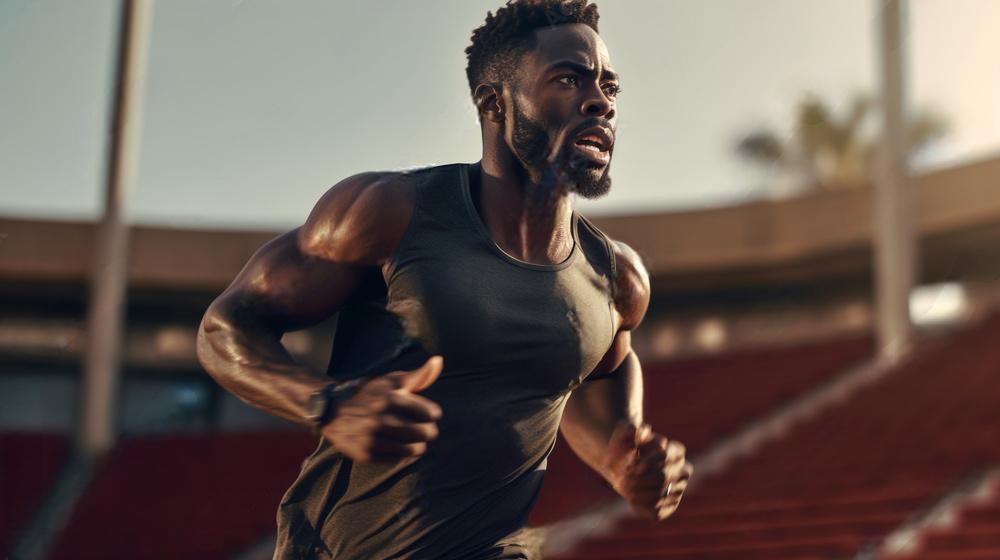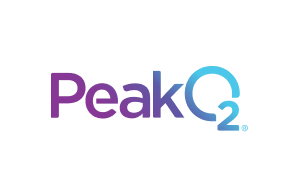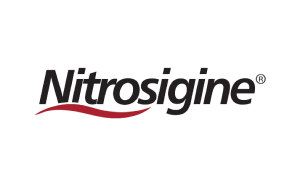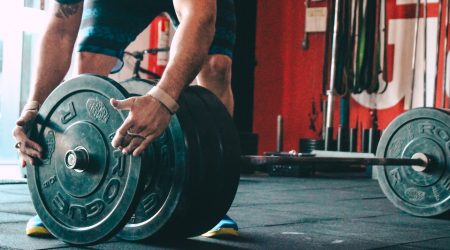TeaCrine® and caffeine are both compounds that are believed to have energizing and stimulating effects on the body. However, differences...

ATHLETIC PERFORMANCE
ATHLETIC PERFORMANCE
Athletic performance is a complex combination of factors that can be improved through training, diet, sleep, and stress management to achieve one’s full potential.
Ingredients
Specialty
Ingredients
Specialty Ingredients
Goal OVERVIEW
Athletic performance is the ability of an athlete to perform at their best in their chosen sport or activity. It is a complex combination of physical fitness, mental toughness, and skill level. Many ways to improve athletic performance include regular training, eating a healthy diet, getting enough sleep, and managing stress.
Athletic performance isn’t just about rigorous training; it begins with the fuel you provide your body. Food is the foundation of your performance journey. Discover the importance of nutrition in unlocking your athletic potential. Learn how the right balance of nutrients can boost your energy, endurance, and recovery.
Don’t forget to explore the science behind supplements and their role as performance enhancers. Delve into the world of safe, science-backed ingredients that can impact your athletic abilities. Discover how these specialized tools can complement your training regimen effectively and safely.
What You Should Know
Improved athletic performance is a journey, not a destination. Improving athletic performance takes time, dedication, and hard work. There will be setbacks, but staying focused on your goals and moving forward is essential. Additionally, athletic performance isn’t just about getting there first; it includes improving and exceeding previously set benchmarks. This may include lifting more weight for more repetitions for longer. It may also be reflected in one’s mental focus and improved ability to dial in.
FOOD FOR THOUGHT
Numerous dietary ingredients can impact various aspects of athletic performance. From energy production to muscle contraction, strength, endurance, and lactic acid buffering, these elements boost high-intensity exercise while enhancing alertness and focus. Explore the specialty ingredients listed on this page as meticulously researched performance enhancers, bringing your athletic ambitions to new heights. Also, discover the doses and what to look for in the supplements that feature them validated as athletic performance enhancers.

SHAGANDHA® BY SABINSA
Shagandha® is a standardized powdered extract from the roots of Withania somnifera, commonly known as ashwagandha. Shagandha® offers various health benefits, including reducing stress, anxiety, and insomnia while improving cognitive function, reducing inflammation, and boosting the immune system. It is available in capsules, powders, and teas and is often used in herbal mixtures. Considered to be a breakthrough Adaptogenic.
Sponsored Content
FAQ
Enhancing athletic performance involves various factors, including proper training, nutrition, rest, and overall health. While many supplements on the market claim to boost athletic performance, it’s important to note that individual responses vary. Not all supplements are supported by strong scientific evidence. Before considering any supplements, it’s recommended to consult with a healthcare professional or a registered dietitian to determine what might be appropriate and safe for your specific needs.
Here are some supplements that have been studied and believed to support athletic performance:
- Creatine: Creatine is one of the most well-researched and effective supplements for increasing muscle strength and power. It helps replenish the energy molecule ATP, essential for short bursts of intense activity, like weightlifting, sprinting, and competing in sports.
- Protein: Protein is essential for muscle repair and growth. Athletes, especially those in strength training or endurance activities, may benefit from increased protein intake to support recovery and muscle synthesis.
- Branched-Chain Amino Acids (BCAAs): BCAAs are a group of amino acids (leucine, isoleucine, and valine) necessary for muscle protein synthesis and recovery. They can be particularly useful during long endurance activities to help reduce muscle breakdown, which is, again, essential for athletic performance.
- Caffeine: Caffeine is a stimulant that can improve focus, alertness, and endurance performance. It is naturally found in coffee, tea, and some sports supplements.
- Beta-Alanine: Beta-alanine is an amino acid that can help increase muscle endurance by buffering against lactic acid build-up during high-intensity exercise. It’s often found in pre-workout supplements.
- Nitric Oxide Boosters: Some supplements contain ingredients that increase nitric oxide production, improving blood flow and potentially enhancing endurance and recovery.
- Fish Oil (Omega-3 Fatty Acids): Omega-3 fatty acids have anti-inflammatory properties and may support cardiovascular health, indirectly contributing to improved athletic performance.
- Vitamin D: Vitamin D affects bone health and overall immunity. Deficiencies may negatively impact performance and recovery, so maintaining adequate levels is essential.
- Electrolytes: Electrolyte supplements can be helpful for athletes engaging in prolonged and intense physical activity, as they help maintain proper fluid balance and prevent dehydration and cramping.
- Carbohydrates: Carbohydrate supplements, such as energy gels or sports drinks, can provide a quick energy source during endurance activities to help maintain blood sugar levels.
Remember that while supplements can enhance performance, they should not replace a well-rounded diet and proper training regimen. It’s also important to be cautious of supplements that make exaggerated claims or lack scientific backing. Athletes should prioritize a balanced diet, sufficient hydration, adequate sleep, and appropriate training techniques to achieve optimal performance. Always consult a healthcare professional before adding new supplements to your routine.
Improving athletic performance naturally involves consistent training, proper nutrition, adequate rest, and lifestyle choices.
Here are some tips to help you enhance your athletic performance naturally and sustainably:
- Balanced Nutrition:
- Consume a well-balanced diet rich in whole foods, including lean proteins, complex carbohydrates, healthy fats, and various fruits and vegetables.
- Prioritize nutrient timing by eating a balanced meal before and after workouts to fuel your body and aid in recovery.
- Stay Hydrated:
- Maintain proper hydration before, during, and after exercise to support performance and prevent dehydration.
- Quality Sleep:
- Aim for 7-9 hours of quality sleep per night to support recovery, hormone regulation, and overall physical and mental well-being.
- Progressive Training:
- Follow a structured training plan that includes strength training, cardiovascular exercise, flexibility work, and skill practice.
- Gradually increase your workouts’ intensity, duration, and complexity to avoid plateaus and reduce the risk of injury.
- Functional Strength Training:
- Focus on functional strength exercises that mimic movements relevant to your sport or activity.
- Incorporate compound exercises like squats, deadlifts, and lunges to improve overall strength and coordination.
- Mobility and Flexibility:
- Incorporate regular mobility and flexibility exercises to improve range of motion, prevent injuries, and enhance performance.
- Mind-Body Connection:
- Practice mindfulness, meditation, or relaxation techniques to improve focus, manage stress, and optimize mental resilience.
- Interval Training:
- Include interval training to improve cardiovascular fitness, endurance, and anaerobic capacity.
- Mix high-intensity intervals with periods of active recovery to challenge your cardiovascular system.
- Cross-Training:
- Engage in cross-training activities to prevent overuse injuries and enhance overall fitness.
- Activities like swimming, cycling, or yoga can complement your primary sport.
- Proper Warm-Up and Cool-Down:
- Warm up before workouts with dynamic stretches and light cardiovascular exercises to prepare your body for activity.
- Cool down with static stretches and gentle movements to promote flexibility and aid recovery.
- Rest and Recovery:
- Incorporate rest days into your training routine to allow your body to recover and repair.
- Active recovery activities like walking, leisurely cycling, or yoga can help promote circulation and reduce muscle soreness.
- Set Realistic Goals:
- Set achievable short-term and long-term goals to track your progress and maintain motivation.
- Listen to Your Body:
- Pay attention to signs of fatigue, pain, or overtraining, and adjust your training intensity or volume accordingly.
- Consistency is Key:
- Consistently follow your training plan, nutrition guidelines, and healthy habits to see gradual improvements over time.
Remember that improving athletic performance is a journey that requires patience and dedication. Avoid seeking quick fixes or drastic measures, which can lead to negative consequences. Consult with fitness professionals, coaches, and healthcare experts to develop a customized plan that aligns with your goals and individual needs.
Athletes, especially those eager to improve their performance, can sometimes make mistakes that hinder their progress or even lead to setbacks.
Here are some common mistakes to be aware of and avoid:
- Overtraining: Pushing too hard without adequate rest and recovery time can lead to overtraining, fatigue, and increased risk of injury.
- Neglecting Recovery: Not giving your body enough time to recover can hinder progress. Adequate sleep, proper nutrition, and active recovery activities are crucial.
- Ignoring Proper Nutrition: Failing to fuel your body with the right nutrients can impact performance and hinder recovery. A balanced diet is essential for optimal results.
- Skipping Warm-Up and Cool-Down: Neglecting warm-up exercises and skipping cool-down stretches can increase the risk of injury and affect performance in the long run.
- Lack of Cross-Training: Focusing exclusively on one sport or activity can lead to overuse injuries and imbalances. Cross-training can help prevent this.
- Poor Technique and Form: Using incorrect form during exercises or movements can lead to injuries and limit training effectiveness.
- Not Setting Realistic Goals: Overly ambitious goals without considering your current fitness level and timeline can lead to disappointment and burnout.
- Ignoring Mental Training: Mental resilience, focus, and motivation significantly affect athletic performance. Neglecting mental training can hinder progress.
- Relying Too Heavily on Supplements: Supplements should complement a balanced diet, not replace it. Relying excessively on supplements can lead to nutrient imbalances.
- Neglecting Flexibility and Mobility: Ignoring flexibility and mobility work can limit your range of motion, leading to decreased performance and increased injury risk.
- Not Listening to Your Body: Ignoring signs of pain, fatigue, or injury can exacerbate issues. Pay attention to your body and make the necessary adjustments.
- Inadequate Rest and Sleep: Poor sleep can affect recovery, mood, and performance. Prioritize quality sleep for optimal results.
- Comparison to Others: Constantly comparing yourself to other athletes can lead to unrealistic expectations and affect your motivation and confidence.
- Lack of Planning: Not following or changing a structured training plan too frequently can lead to inconsistent progress.
- Ignoring Recovery Tools: Foam rolling, massage, and other recovery tools can aid in muscle recovery and prevent tightness or injury.
- Not Seeking Professional Guidance: Avoiding professional advice from coaches, trainers, or healthcare professionals can lead to incorrect training methods or missed opportunities for improvement.
- Too Much Focus on Gear: While proper equipment is important, relying solely on high-tech gear instead of focusing on training and technique can hinder progress.
- Neglecting Mental Health: Mental well-being affects physical performance. Ignoring mental health issues can have negative consequences on both aspects.
Take a holistic approach to your training and performance goals to avoid these mistakes. Prioritize proper planning, balanced nutrition, adequate recovery, and overall well-being. Consult with coaches, trainers, and healthcare professionals for guidance tailored to your needs and aspirations.
Related Videos
Articles
ProQnol® is a brand of Coenzyme Q10 (CoQ10) supplement. CoQ10 is a naturally occurring compound in the body that plays...
The optimal Bacopin® dosage is a popular topic among individuals interested in its cognitive benefits. Discovering the optimal dosage and...



















